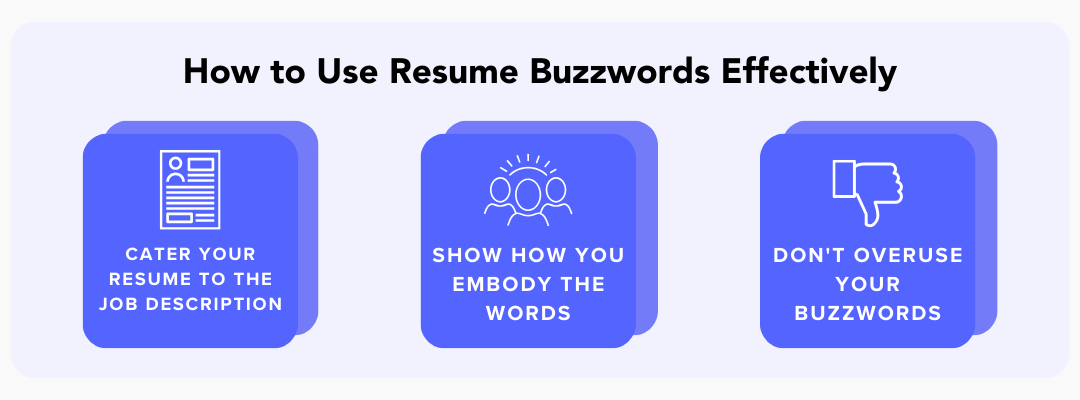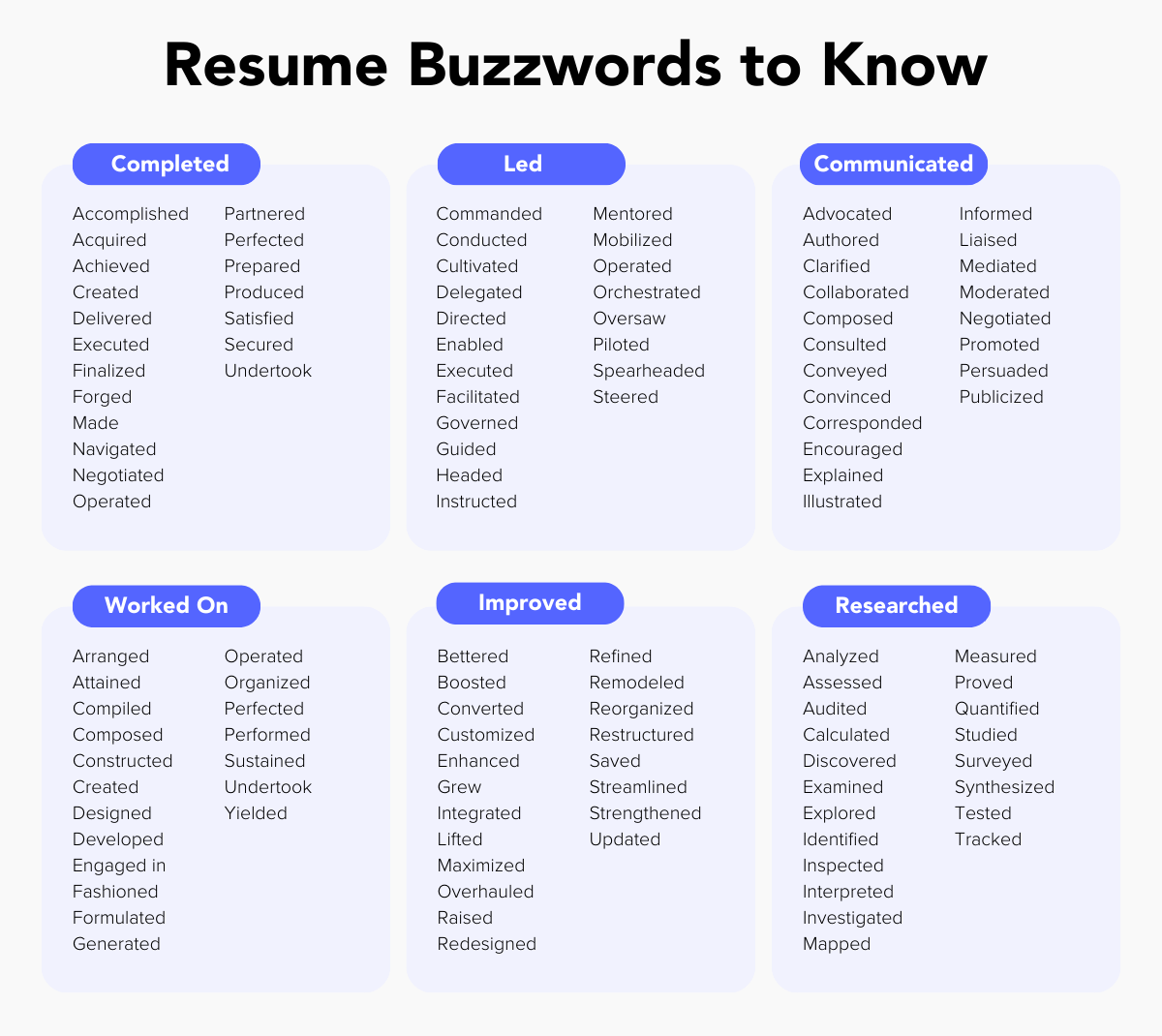When it comes to creating a resume, there are a lot of different approaches you can take. But one thing that all great resumes have in common is the use of strategic language.
In other words, your CV should be full of words and phrases that will catch the attention of recruiters and hiring managers and help you stand out from the competition. But what exactly are these resume buzzwords that everyone’s talking about? And how can you use them to your advantage? Let’s take a closer look!
What is a resume buzzword?
When you’re job searching, the words you write can make or break your resume.
A resume buzzword— also known as a power word— is a specific word or phrase that hiring managers look for to evaluate your skills and qualifications. And, in a world where software is commonly used to sort through resumes, it’s important to use the keywords that applicant tracking systems (ATS) are scanning for.
Buzzwords could be industry-specific terms, such as familiar technologies or software programs you may have used and that demonstrate your proficiency in the field. They could also be more general traits sought after in today’s workplace, like strong leadership or communication skills.
Buzzwords are also commonly verbs, which demonstrate your skills in action.
Knowing which resume buzzwords to use— and where— can amplify your resume and set you apart from similar applicants.

How to use resume buzzwords effectively
Crafting a resume is like writing a story in which the main character is you. In the same way that authors use certain words to bring characters to life, jobseekers can galvanize their resumes with dynamic buzzwords.
Here’s what you should keep in mind.
1. Cater your resume to the job description.
First and foremost, you should cater each and every resume you write to the job that you are applying for.
This means:
- Reading the job posting
- Noting what skills and qualifications the employer is looking for
- Making sure to include these desired skills on your resume (only if you actually possess those skills or experiences, of course)
It can help to use the exact words found in the job description. For example, if they’re looking for someone who is proficient in Adobe Photoshop, make sure to mention Adobe Photoshop rather than just “image editing software”.
2. Show how you embody the buzzwords, rather than just list them.
The trick is not to just slam them down on the paper and expect results. Rather, demonstrate how these qualities are embodied in your past experiences by providing tangible examples.
If you’re an adept problem-solver, for instance, point out exactly how you identified key issues at previous jobs and provided effective solutions.
Here’s an example that you may find on an actual resume:
DivAble Tech – Columbus, Ohio
Accountant | May 2019 – March 2023
- Managed financial records, conducted audits, and ensured compliance with GAAP standards, resulting in accurate and transparent financial reporting for the organization.
- Oversaw budget preparation and financial forecasting, contributing to the company’s strategic financial planning and cost-saving initiatives.
- Recognized a recurring discrepancy in reconciliation processes; developed and implemented a new streamlined reconciliation procedure, reducing errors by 20% and improving efficiency.
In the example, instead of listing “problem solving” as a skill, they demonstrated it by showing how they recognized a problem, developed a solution, and implemented it. All of these can be considered power words!
Using resume buzzwords successfully can really enhance your candidacy and create powerful connections between the reader and what you have to offer.
3. Don’t overuse your buzzwords.
Many jobseekers may be tempted to overuse buzzwords on their resumes in an effort to really make themselves stand out from the competition.
However, it’s important to remember that there’s a difference between effective self-promotion and overselling yourself. Buzzwords, when used too frequently or incorrectly, can be off-putting and send employers the wrong message.
Instead of trying to cram in keywords, focus on accurately articulating your experience by giving concise examples of past achievements and accomplishments.
Examples of resume buzzwords
Even writers can have a difficult time coming up with the words that properly articulate their experience!
Keeping a list of power words nearby when you’re writing your resume can ensure you’re using the right ones.
Here are 100+ of our favorite resume buzzwords and synonyms to keep in mind.

Use your words wisely
Resumes can be one of the most difficult steps of a job search. With so many people applying for the same position, it’s important to make sure your resume has what it takes to stand out. One way to do that is to use the right words to outline your experience.
Whether it’s technical language related to your field or words describing your personality and attitude, having relevant keywords can help employers quickly you as a good fit for the job.
